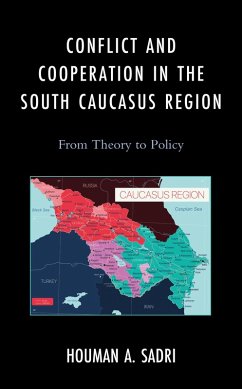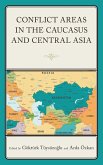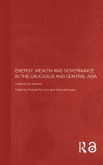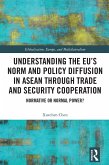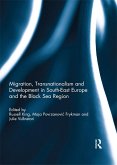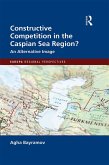Conflict and Cooperation in the South Caucasus Region: From Theory to Policy combines IR theory and policy in a readable format. Houman A. Sadri discusses the distinctive challenges of the South Caucasus region and offers a survey of relevant IR theories. Armenia, Azerbaijan, and Georgia are covered in-depth since independence
These former Soviet republics have experienced major conflicts and cooperation since independence in the early 1990s. The 2008 Russian invasion of Georgia and the Armenian-Azeri Wars captured headlines and affected markets, but the completion of energy pipelines exposed the complexity of cooperation in connecting the regional and global political economy.
Conflict and Cooperation in the South Caucasus Region has three major purposes :1) To provide a survey of the major developments of the Caucasus States, 2) To analyze the application of IR prominent theories, and 3) To offer practical policy options for policymakers seeking to understand the South Caucasus region.
What does the remainder of the 21st Century hold for Armenia, Azerbaijan, and Georgian? Where are the main sources of threats? How can these threats be effectively dealt with?
These former Soviet republics have experienced major conflicts and cooperation since independence in the early 1990s. The 2008 Russian invasion of Georgia and the Armenian-Azeri Wars captured headlines and affected markets, but the completion of energy pipelines exposed the complexity of cooperation in connecting the regional and global political economy.
Conflict and Cooperation in the South Caucasus Region has three major purposes :1) To provide a survey of the major developments of the Caucasus States, 2) To analyze the application of IR prominent theories, and 3) To offer practical policy options for policymakers seeking to understand the South Caucasus region.
What does the remainder of the 21st Century hold for Armenia, Azerbaijan, and Georgian? Where are the main sources of threats? How can these threats be effectively dealt with?

